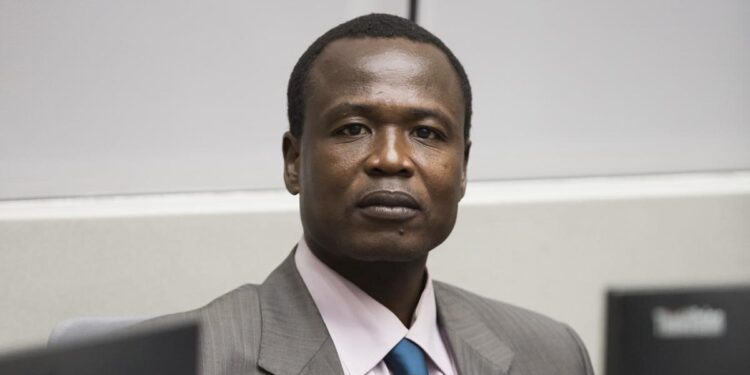Former Lord’s Resistance Army commander Dominic Ongwen will know his fate on December 15, 2022, when the Appeals Chamber of the International Criminal Court will deliver its judgment on his appeal against his conviction and sentence.
The Chamber will be composed of Judge Luz del Carmen Ibáñez Carranza (presiding), Judge Piotr Hofmański, Judge Solomy Bossa, Judge Reine Alapini-Gansou, and Judge Gocha Lordkipanidze.
On February 4, 2021, Trial Chamber IX convicted Ongwen of leading attacks on civilians in the Pajule, Odek, Lukodi, and Abok camps for internally displaced persons in northern Uganda between July 1, 2002, and December 31, 2005.
On May 6, 2021, the court sentenced him to a total period of imprisonment of 25 years as a joint sentence after finding him guilty of 61 of the 70 counts of war crimes and crimes against humanity he had been accused of.
He is currently in detention in the Netherlands.
Ongwen’s lawyer, Krispus Ayena Odongo, appealed against the conviction and sentence and raised at least 90 grounds of appeal in his filing of May 21, 2021.
Ongwen was among five top Lord’s Resistance Army (LRA) commanders indicted by the ICC for war crimes and crimes against humanity. Others are the elusive LRA leader Joseph Kony and Vincent Otti. The judges terminated the proceedings against Raska Lukwiya and Okot Odhiambo after confirming their deaths.
ALSO READ: At last, Kony could face justice if judges allow Khan to try him in absentia
ICC Prosecutor Karim Khan has requested the court’s authorisation to hold a hearing on the confirmation of charges against Kony.
Ongwen is a victim of the LRA, abducted when he was nine or 10 years old. He quickly rose through the ranks, becoming a battalion commander, then a senior commander in the Sinia Brigade. He had 700 soldiers under his command.
He is the first Ugandan and former LRA commander to be tried, convicted, and sentenced by the ICC. He was surrendered to the ICC in January 2015 and transferred to ICC custody on January 21, 2015.
The LRA started operating in 1987 in northern Uganda among the ethnic Acholi communities, which had suffered serious abuses at the hands of successive Ugandan regimes during the country’s turbulent history of the 1970s and 1980s. In its heyday, the LRA abducted and killed thousands of civilians in northern Uganda and mutilated many others by cutting off their lips, ears, noses, hands, and feet.
The United Nations estimates that more than 100,000 Ugandans were killed in the conflict, 60,000-100,000 children and adults were abducted as combatants to the conflict, and more than 2.5 million people were displaced from their homes in the central African region between 1987 and 2012.
In 2004, after many unsuccessful attempts to dislodge LRA both from Acholiland and the neighbouring states of the Democratic Republic of the Congo, Sudan, and the Central African Republic, the Ugandan government referred the situation in the northern region, on its territory, to the ICC to investigate crimes under the Rome Statute. The ICC issued arrest warrants against Kony and four other senior leaders in 2005 for war crimes and crimes against humanity.







